TAY Audit Service
April 11, 2024
April 11, 2024

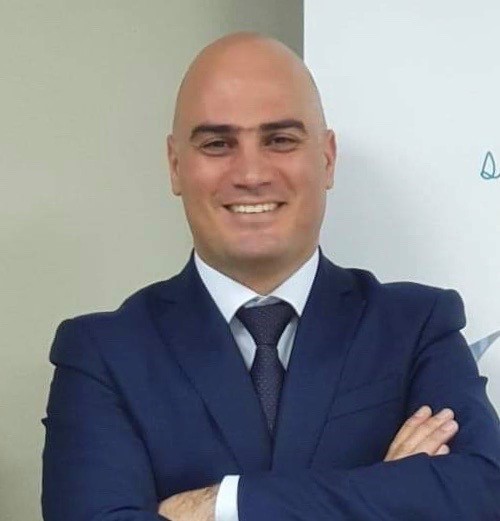
Tarek Zouari is a seasoned chartered accountant with over 20 years of international experience in Finance and Audit, serving as the Regional Chair for Kreston’s Africa Steering Committee & Advisory Group. He is also the past President of Exco Africa, the first African network of independent accounting and auditing firms.
January 16, 2024
Recently, our Kreston Global expert in Tunisia Tarek Zouari, Managing Partner Exco Tunisie wrote a piece on the trend of investing in Africa for Trade Finance Global magazine. You can read the full article here or the summary below.
The United Nations Conference on Trade and Development’s World Investment Report 2023 highlights that foreign direct investment (FDI) flows to Africa reached $45 billion in 2022.
A significant trend is the insistence by African governments on local transformation of extracted resources, ensuring local value addition and potentially boosting FDI.
It’s crucial to understand the economic, legal, and cultural diversity across African regions for successful investment and engagement.
Essential Steps Before Expanding into Africa
Regulatory and Financial Aspects
If you are interested in doing business in Africa, please get in touch.

November 28, 2023
Congratulations to Kreston Pedabo in Nigeria, that recently celebrated its 25 anniversary with an Anniversary Symposium. The event was celebrated with clients and attended by Kreston Global Chief Executive, Liza Robbins, virtually. Kreston Pedabo marked its 25th anniversary in November 2023 with a strategic rebranding to expand its international services. Comprising 10 partners and 150 staff across three Nigerian locations, Kreston Pedabo specialises in audit, tax compliance, financial advisory, and more.
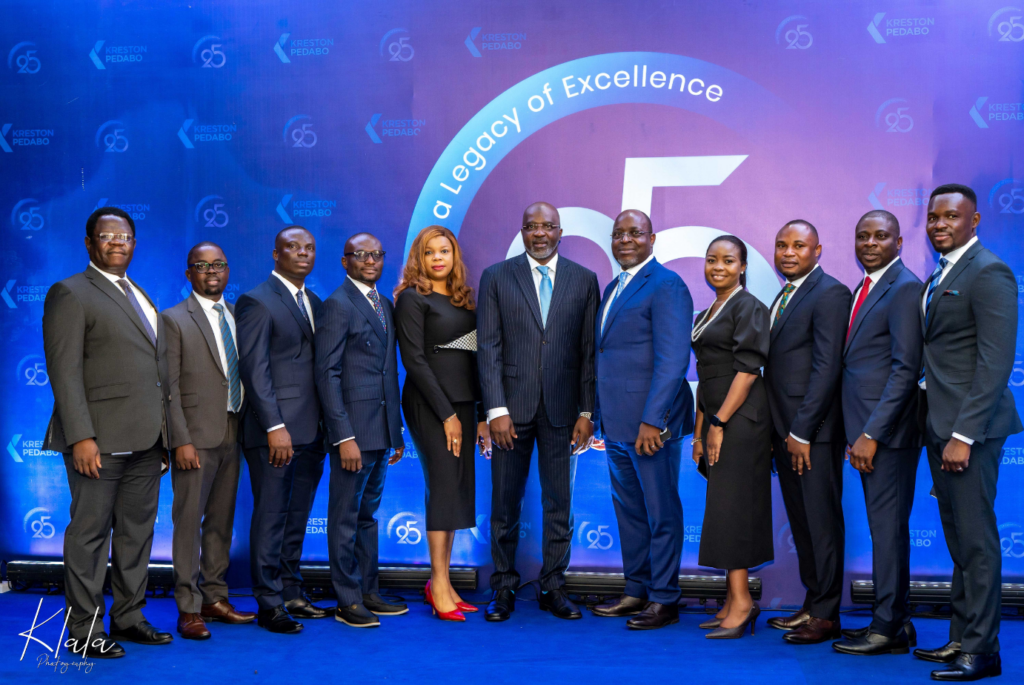
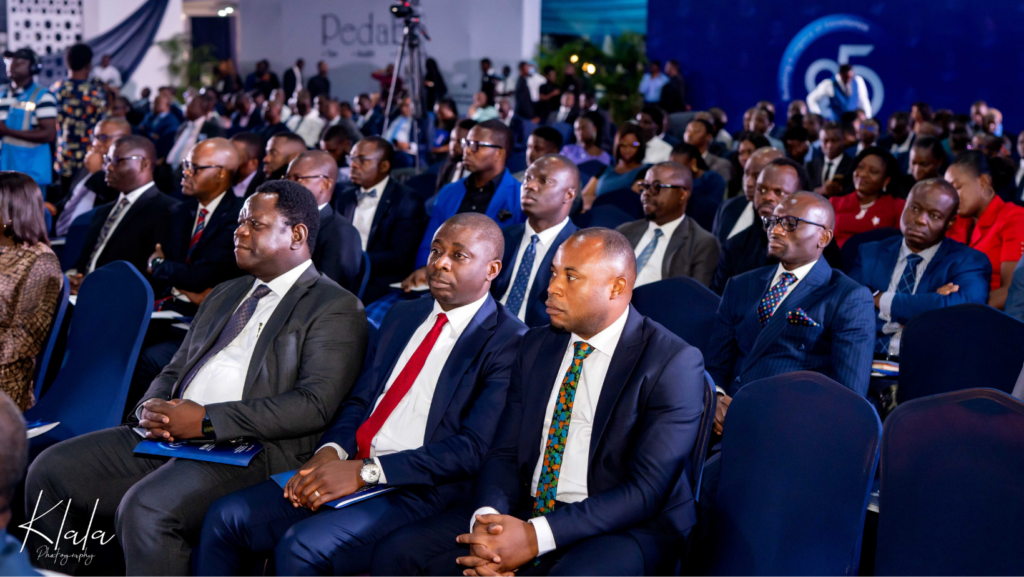


October 3, 2023
Kreston Global has welcomed Nigerian firm, Pedabo, to the Kreston Global network.
Kreston members can learn more about the Kreston Pedabo team here.
Founded in 1998 by Ajibade Fashina and Albert Folorunsho, Pedabo will mark its 25th anniversary in November with a rebrand to Kreston Pedabo, part of a strategy to extend its international services offering to a wide range of private and listed companies. Made up of 10 partners and 150 staff across three locations in Nigeria, the firm specialises in audit, assurance, tax compliance and advisory, financial advisory and risk management, management consulting and other support services.
The addition of Pedabo to Kreston Global’s network further strengthens its African regional presence, which consists of 30 member firms across 29 countries providing a range of financial, audit and accounting, taxation and other advisory services to businesses exploring inbound and outbound growth opportunities.
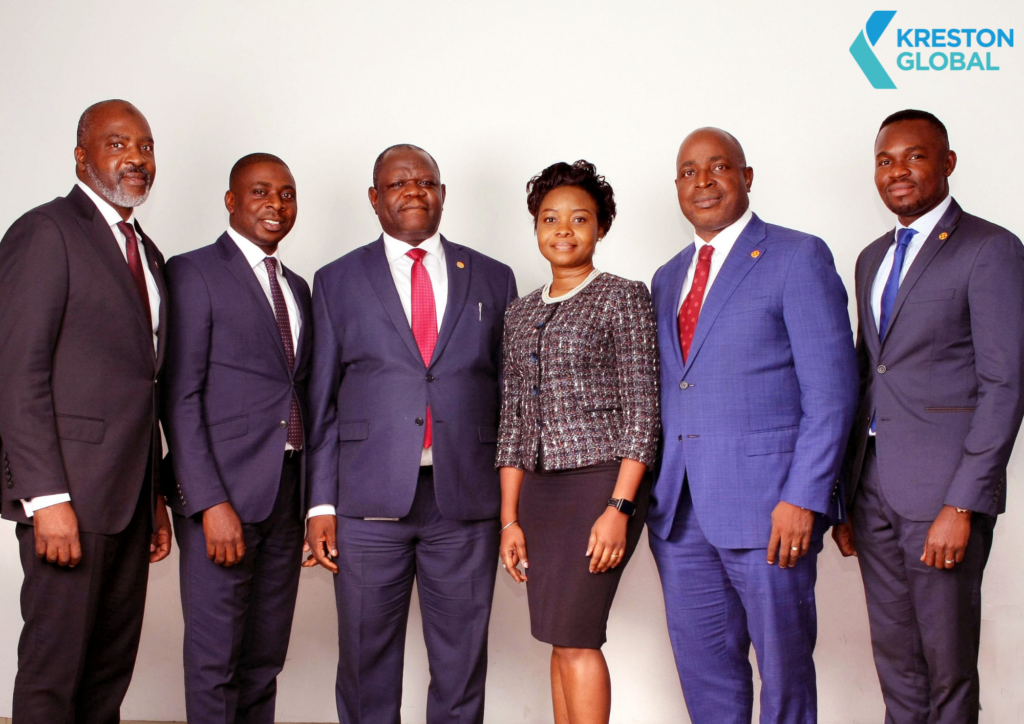
Liza Robbins, Chief Executive of Kreston Global, said:
“Pedabo has built an exceptional reputation in the Nigerian tax, audit and advisory landscape over the past 25 years. The breadth and depth of their expertise make them a trusted business partner for inbound and outbound clients. We look forward to working with them to build their standing in the international market, forging links across the network and beyond. They will be a great asset to our network and our African firms are extremely excited to be working with them.”
Ajibade Fashina, Managing Partner at Pedabo said
“Pedabo is indeed excited to begin this new phase; as founding partners, Albert and I are elated and proud of the progress that we have made in building the Pedabo we see today having truly established a Legacy of Excellence, but we are even more enthusiastic about the next 25 years and the new leadership that will take the firm to new heights with the Kreston brand. The choice of Kreston was not one that was made lightly, and we intend to establish a truly successful collaboration as we explore the Pedabo future leveraging the strengths and opportunities of the 13th largest accountancy network worldwide. So… Hearty cheers to Pedabo and on to the next 25 years of excellence on a global scale!”
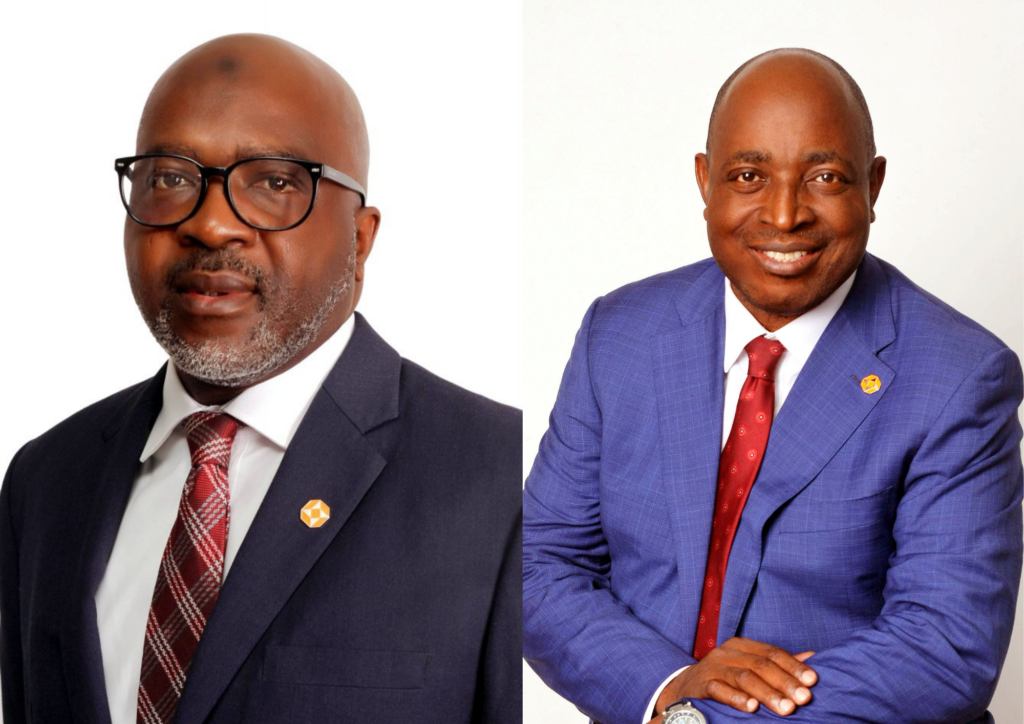
To learn more about doing business in Nigeria, click here.
October 2, 2023
September 28, 2023
September 11, 2023

August 3, 2023
Recently, International Accounting Bulletin invited Kreston Global members to comment on global M&A trends in accounting. Mergers and acquisitions (M&A) have become a critical competitive strategy for companies worldwide. However, the landscape varies significantly across developed and developing markets. Kreston Global members Alexandre Kouame partner at Exco ECA in the Ivory Coast, George Itotia from Kreston KM in Kenya, and Chairman of the Board, Rich Howard from CBIZ MHM, share valuable insights to the discussion. Read the full article here or the summary below.
In developed markets like the US and Canada, M&A activity in 2022 was largely driven by a skills shortage. Companies have had to adapt, embracing remote working environments and supplementing resources through outsourcing and offshoring. Here, M&A provides a platform for immediate resource and capability amalgamation. Another surprising driver for M&A in these markets is succession. As Rich Howard points out, many partners in accounting firms approaching retirement age are seeking mechanisms to monetise their contributions, and M&A provides a sustainable solution.
Technology has played a significant role in M&A activity. To stay competitive, firms are investing heavily in technological development and implementation. Private equity investment, while creating some buzz, is not the dominant investment form in the US, according to Howard. Regulatory scrutiny may accompany the introduction of third-party capital, ensuring that relationships between firms and private equity groups adhere to the rules and regulations of the accounting sector.
Despite the M&A trends in developed markets, businesses in Africa face serious challenges. The lack of liquidity is a crippling factor, and raising funds or attracting investment for crucial M&A operations is difficult. Alexandre Kouame, accountant and statutory auditor at Exco ECA (a Kreston Global member firm), believes the issue lies with the financial sector, particularly European banks operating in African markets. These banks often support European companies established in Africa rather than local businesses.
George Itotia, a partner at Kreston KM, highlights that M&A in Africa isn’t merely about promoting growth, but survival. High taxes and low lending contribute to liquidity problems, resulting in many companies folding. He notes a shift by local lenders to invest in long-term government securities rather than in the private sector, deemed too risky. Thus, foreign direct investment is essential for local M&A to thrive.
However, M&A’s financial, tax, and legal challenges in Africa make partnerships a more viable alternative. Strategic partnering helps local companies collaborate on technology and enhance local personnel’s skills. Although private equity is gaining traction in Africa, Kouame asserts that the margins attracting PE companies are shrinking due to increased competition and tax pressure.
In South America and the Middle East, inflation and other economic challenges have created an uncertain environment for M&A. However, M&A continues to be discussed as a possible path forward.
In conclusion, while M&A offers a significant competitive advantage in developed markets, several obstacles hinder its effectiveness in developing regions. Experts from Kreston Global, including Rich Howard, Alexandre Kouame, and George Itotia, contribute to a more nuanced understanding of this global trend and its various implications. Kreston Global Chief Executive, Liza Robbins, recently wrote a blog on private equity investments in accounting firms. Read her full blog here.

July 7, 2023
Read our July Client Update 2023, with a wealth of insights from our experts across the network.
Read, share, and let us know your thoughts!
Kreston Global Chief Executive, Liza Robbins, discusses the challenges of doing business internationally, as we enter a “low-growth, low-investment and low-cooperation era” in an interview with Raconteur.

VAT expert, Luc Heylens from the Kreston MDS network in Belgium, discusses the VAT in a Digital Age package. This package is a set of measures developed to modernise and make the EU’s Value-Added Tax (VAT) system work better for businesses and more resilient to fraud by embracing and promoting digitalisation.

In an article published by the International Accounting Bulletin, Doron Rozenblum from Kreston IL in Israel and Herbert M. Chain from CBIZ MHM in the US elaborate on the profound changes sweeping across the profession, driven by the adoption of cloud technology and the emergence of digital assets such as cryptocurrencies.

Investments in Africa are rising, particularly within the burgeoning African “green economy”. Tarek Zouari, the Managing Partner and founder of Exco Tunisia highlights this area as a prime opportunity for foreign investors in an interview with Wealth Briefing Magazine.

Doron Rozenblum, Kreston IL, was featured in Accounting Today, sharing insights on why internal audit is the key to cyber risk management.

Dr J.P. Gupta, Chairman of the Kreston SNR Advisors LLP Board in India, has been appointed chair for the upcoming International Climate Summit: 2023.
This summit, taking place on 14 and 15 September 2023 in New Delhi, will explore utilising green hydrogen and alternative fossil fuels.
With a focus on the theme “Sustainability Through Green Growth,” this event aims to gather global leaders and experts to engage in meaningful discussions about combating climate change. The event already has over 58,000 online registrants.
Read the latest guidance in your region from our experts from the Kreston Global ESG Committee.

ExxonMobil, Mauritania
Exxon Mobil, one of the world’s largest oil and gas companies, appointed member firm Exco GHA Mauritanie to carry out accounting, tax and payroll services for three of their subsidiaries in Mauritania.
If you are interested in expanding into Mauritania, read the latest tax guide and investment advice, written by experts from EXCO GHA Mauritanie.
Doing business in The Netherlands

This useful new guide offers practical insights and tips to facilitate a smooth transition into the Netherlands business landscape.
Doing business in Chile

The comprehensive, 62-page guide offers legal and regulatory frameworks, financial activities, industry-specific scenarios and more.


Stuart is an FCA-qualified chartered accountant with more than 10 years of practical accounting and audit experience.
He leads the technical developments for Duncan & Toplis. This covers audit, financial reporting and maintaining quality of work.
He has recently been appointed to Duncan & Toplis’ operations board and become a member of the ICAEW’s influential Ethics Advisory Committee. Stuart also sits on the Kreston Global ESG Committee.
June 28, 2023
On 26 June 2023, The International Sustainability Standards Board (ISSB) issued its first two reporting standards, IFRS S1 and IFRS S2.
The issuing of these inaugural standards signifies the “ushering in a new era of sustainability-related disclosures in capital markets worldwide”.
One of the most significant limiting factors to the effectiveness of climate reporting has been the number of different bases on which entities report on. There has been a desperate need for global consistency. It is hoped that the release of these standards will be a turning point for the disclosure of climate-related risks and opportunities specific to individual entities.
These first two standards build on the ISSB’s objectives to;
S1 covers the general requirements for disclosure of sustainability-related financial information.
S1 sets the scene for the specific requirements of S2 and for future sustainability standards covering areas other than climate.
S1 adopts the structure of the Task Force on Climate-Related Financial Disclosures (TCFD). S1 also refers to other standards and frameworks in the absence of a specific ISSB standard.
The standard’s main objective is to “require an entity to disclose information about its sustainability-related risks and opportunities that is useful to users of general-purpose financial reports in making decisions relating to providing resources to the entity.”
There is a requirement that an entity discloses information about all such risks and opportunities that could reasonably be expected to affect the entity’s prospects.
S1 prescribes how an entity prepares and reports such disclosures, setting out general requirements for the content and presentation of those disclosures so that the information is useful to the users of that information.
In particular, the standard requires that an entity provides disclosures about:
S2 covers the specific requirements of climate-related disclosures.
The main objective of the standard is to “require an entity to disclose information about its climate-related risks and opportunities that is useful to users of general-purpose financial reports in making decisions relating to providing resources to the entity.”
S2 also incorporates the TCFD recommendations and guidance and includes a requirement to provide industry-specific disclosures. Industry-specific metrics are included as illustrative guidance, taken from SASB standards.
S2 specifically applies to:
In particular, the standard requires that an entity provides disclosures about:
Both standards are effective for periods beginning on or after 1 January 2024, early adoption is permitted as long as both standards are applied.
Adoption of the standards is voluntary. However, local jurisdictions may make their adoption mandatory for certain classes of entities.
At this stage there are no specific assurance requirements in place. However, analysis provided by IFAC would indicate that of the entities reviewed that did report some ESG information, over 50% have obtained some level of assurance on that information between 2019 – 2021.
Assurance has been gained from the entity’s auditor (who provides the majority) and other service providers.
Although there are no specific international ESG assurance standards currently set, the majority of assurance work was performed under ISAE 3000 (revised). The vast majority of reviews obtained limited assurance with c10% obtaining reasonable assurance.
The ISSB will be promoting the standards worldwide, working with local jurisdictions and focusing on the standard’s connectivity with financial statements. There is also currently a public consultation on four projects to further understand the standard-setting priorities covering ecosystems, human capital, human rights and integration in reporting. Further standards covering other elements of ESG are likely to follow.
In addition to the ISSB standards, EFRAG has been developing the European Sustainability Reporting Standards (ESRS – 12).
These standards have a mandatory implementation for applicable entities with a progressive phase-in period over several years, with early adoption being encouraged.
The standards have a comprehensive coverage of ESG matters, not just focusing on climate to start with.
The standards have the concept of double materiality and the ESG reports must be made in the management report, at the same time as the financial statements.
The standards also have a mandatory assurance element, starting as limited but moving to reasonable over time.
EFRAG is working with the ISSB to promote interoperability.
The European standards certainly seem to have built on the international ones so far, and are mandatory with a mandatory assurance element.
The introduction of the two SS standards is a pivotal moment in the reporting of ESG matters.
They provide a basis for international comparability and help bring ESG matters to the forefront of investors’ decision-making.
More will follow but this is a vital moment in the battle towards net zero. Read more about global ESG developments on our sustainability hub.

June 22, 2023
Investments in Africa are rising, particularly within the burgeoning Africa “green economy”. Tarek Zouari, the Managing Partner and founder of Exco Tunisia, highlights this area as a prime opportunity for foreign investors in an interview with Wealth Briefing Magazine. Read the full article or the summary below.
Zouari believes that the green economy in Africa is set to grow and will play a pivotal role in developing resilience for the who continent.
“Not only is there an appetite for foreign investment, but a growing population means there is demand for green innovation that creates a climate-resilient food supply, workforce, and economy.”
Zouari also notes the dual role of Africa as both a victim of and solution to climate change: “This presents both opportunities and challenges for Africa’s future development, positioning the continent as highly vulnerable to the effects of climate change and also a site of great renewable potential as the green economy evolves.”
Renewable energy
Renewable energy represents a significant opportunity, with an abundance of solar, wind, hydro, and geothermal energy resources across the continent. Zouari believes Africa’s energy transition could present a $100 billion per year investment opportunity, with climate-resilient infrastructure offering potential investments between $130 billion and $170 billion.
Agriculture and agribusiness
Sustainable agricultural practices present an avenue for investors to make a real impact. Zouari suggests, “Foreign investors can participate in the development of sustainable agriculture projects, invest in agribusiness companies that prioritise sustainability, or provide financing to smallholder farmers to adopt sustainable farming practices.”
Waste management and recycling
“Waste management and recycling are also emerging sectors in the African green economy,” Zouari continues. Investments in infrastructure and waste management practices could significantly improve sustainability across the continent.
Green technology in mining
“Natural resources are a significant contributor to continental GDP, so green technology is increasingly being adopted in the mining industry as companies seek to reduce their environmental impact and improve sustainability,” Zouari said.
Accounting also plays a critical role in Africa’s green agenda, Zouari notes, by providing a framework for measuring, reporting, and managing environmental impact. “With the growing global focus on sustainable development, companies operating in Africa are increasingly expected to report on their environmental, social, and governance (ESG) performance,” he adds.
He emphasises the importance of adhering to these standards, stating, “A foreign investment’s ESG principles may determine their fate in the African market as governments, regulators and international funding bodies such as the World Bank, the African Development Bank, and the United Nations, increasingly prioritise ESG considerations in their project approval and funding decisions.”
Zouari also stresses the responsibility of the finance and accounting sector to support foreign green investment into Africa, “by conducting ESG assessments and audits to evaluate a company’s environmental, social, and governance practices and identify areas for improvement.” They also play a role in providing sustainability reporting and assurance services, as well as offering sustainability training and capacity building.
If you would like to learn more about the green economy in Africa, please get in touch.

June 20, 2023
Kreston Global’s African network, EXCO Afrique, has announced a new President of the African network.
Abdoulaye Camara of EXCO Senegal takes up the role of President and is joined by Mathieu Sougue of EXCO Ougadougou as General Manager.
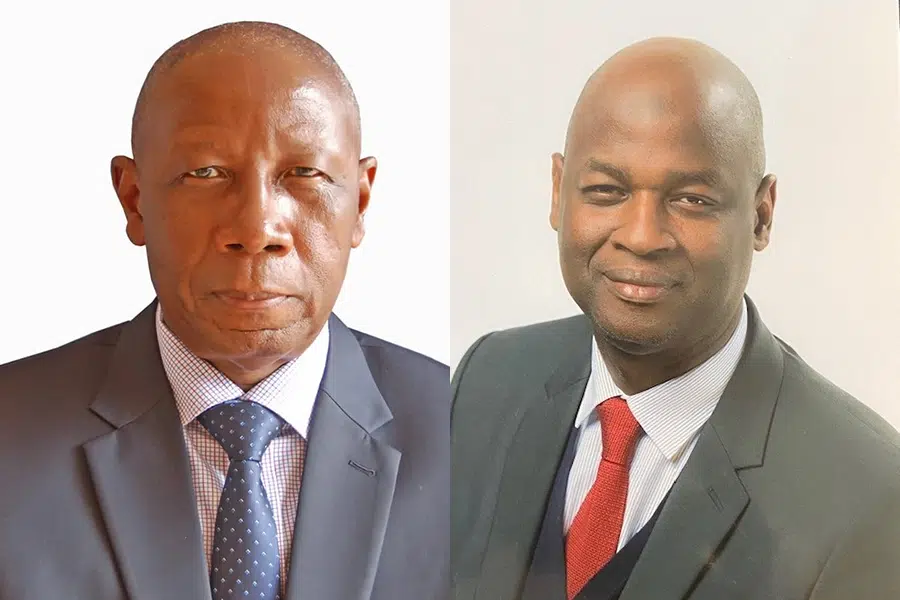
Mathieu Sougue (L) and Abdoulaye Camara (R)
EXCO Afrique said a farewell and thank you to outgoing President, Tarek Zouari of Exco Tunisia who held the office of President from 2020 to 2023.
EXCO Afrique is part of the network EXCO, which has extensive coverage in France and Poland.
Abdoulaye Camara, incoming President, said:
“I am delighted to take up the role of President of EXCO Afrique – a network of 28 French-speaking accounting firms based across the African continent. I look forward to liaising with them all and helping both them and the wider Kreston Global network attract and service clients within and across the African continent.”
Liza Robbins, Chief Executive of Kreston Global, said:
“Kreston is delighted to welcome Abdoulaye as new President of EXCO Afrique, and Mathieu as General Manager. We greatly value our relationship with our African members and have worked closely with Tarek in his role as President to help develop our Africa region. I look forward to working with Abdoulaye to help him further his objectives as incoming president.”
For more information on our representation in this region, please go to our Africa page.